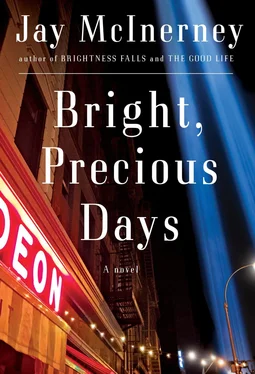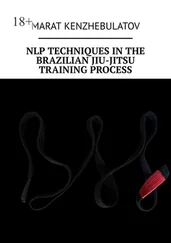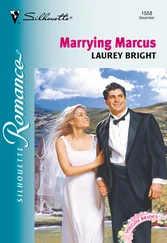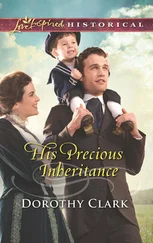Corrine opened her grandmother’s purse, pulled out her Razr and tapped in the number. She’d never encountered this bidding technology before and she didn’t entirely believe it would work, or so she told herself as she typed in the code and then the message Happy H2O. She glanced over at Russell, who was deep in conversation with Kip Taylor’s wife. Would including his name make it better or worse? Should she just stop now? She typed Corrine and Russell Calloway and pressed SEND.
“We have our first pledge,” Luke said from the stage. He seemed to miss a beat, pause just a moment before announcing, “Corrine and Russell Calloway have just bought clean drinking water for a school in the Transvaal. Thank you, Corrine and Russell.”
Russell looked more puzzled than angry as he accepted congratulations from his tablemates before directing a quizzical gaze at Corrine. She shrugged, put on her most winsome smile. There would, of course, be an interrogation, reminders about bills and tuition, admonitions about charity beginning at home. It was going to wreck their budget for the next few months, probably. They gave, when they could, five hundred to Brown, their alma mater, five hundred to Oxfam and Meals on Wheels and the Henry Street Settlement, two fifty to PEN and the ASPCA. And they gave every day, in a sense, to Nourish New York, since as an executive director of that organization, Corrine was paid about half of what she would have been paid in a private-sector job; plus, they wrote a check every year for the gala. But they’d never given this much to any single charity. She hardly knew why she’d done it — on an impulse, as a kind of ontological squeal, a cry of “I’m here” directed at her former lover? But on reflection she was glad, and she thought she could justify it, smooth it over at home.
She had a strong suspicion that Russell was going to get lucky tonight. For him that was the good news; the bad was that she was afraid she’d be thinking of someone else.
STILL ON THE AFRICAN CLOCK, Luke woke up a few hours after he’d fallen asleep, thinking about Corrine. He checked the markets in Europe, cleared his e-mail and talked to his vineyard manager. Baboons harassing the pruning team — normally only a problem near the harvest, in March, when the grapes were ripe. Something they didn’t have to deal with in Napa or Bordeaux. The workers threw rocks at them and the apes started throwing them back. His manager had put in an early order for lion dung from a local game park, which was effective as a deterrent.
He’d known that he would see Corrine the night before last, but he hadn’t really known how he would react. Three years ago, after yet another post-breakup rendezvous, he’d taken himself to the other side of the world in no small part to get away from her.
He met Giselle at a garden party in Franschhoek, a pretty girl in a white dress crouching in the courtyard, talking to a giant tortoise with a ring dangling from a hole in its shell, feeding it an orange wedge from the drink in her hand. “We’re old friends,” she said when she looked up and caught him watching her. And indeed, her little gold nose ring hinted at a certain affinity. He was immediately attracted to her; only later did he become conscious of her resemblance to Corrine.
Twenty-nine years old, she’d recently broken off a long engagement with a man she’d known since childhood. That first afternoon she told him quite frankly that she was tired of all the young men in her insular social circle and that she was thinking of moving to London or the States. She’d done some modeling in Paris as a teenager, traveled in her early twenties, and ended up back home in Cape Town, where she fell in with an old family friend, who’d eventually proposed.
Luke told her about his recent divorce from Sasha, about his daughter, who’d be joining him for her summer vacation, but he never mentioned Corrine. Before proposing to Giselle, he’d gone back to New York and spent a month at the Carlyle, somehow imagining that he’d run into Corrine somewhere. He felt that if he did, it would be a sign. A few days after he returned to South Africa, he ran into Giselle at a cocktail party.
At seven-thirty the breakfast cart was delivered and he woke Giselle, who was flying back to Cape Town that morning. “All packed?” he asked as she lingered over tea in her fluffy white bathrobe.
“I think so,” she said. “I’m sorry to leave you here alone.”
“I’ll be busy,” he told her, “and you can’t very well miss your cousin’s wedding.”
After the bellman finally came for the luggage, he walked her down to the car. “I’ll miss you,” she said.
“I’ll miss you, too,” he agreed, though in fact for the first time he could recall he was impatient for her to leave.
After the car disappeared into traffic, he scrolled to Corrine’s number on his BlackBerry and typed: Thanks for the contribution. It was great to see you the other night.
It occurred to him that their affair had preceded texting — or at least their own use of it. Maybe she didn’t text.
A few minutes later the instrument buzzed, dancing on the onyx coffee table.
Great not quite the word I’d use. Had no idea would see you. Husband not real happy about sudden excursion into philanthropy.
Don’t worry, I’ll cover you on that.
Too late. Already settled up on the way out.
Can I see you?
Why?
Tell you when I see you.
He stood at the big window, looking downtown, as if he might be able to spot her out there down near the tip of the island, past the MetLife, the Chrysler and the Empire State Buildings, checking the screen of his BlackBerry as the minutes ticked by. The device finally vibrated again.
Working today in Bronx.
Time to meet before?
9 AM Caffe Roma.
He wondered if he was supposed to know where it was, if she was testing him. He Googled it: a pastry place in Little Italy. They’d stopped there once, he remembered now, coming off the night shift at the soup kitchen. Cannolis and cappuccino. Holding hands under the table, the interior redolent of fresh-baked bread and coffee after a night in the acrid smoke, the airborne residue of the ruined towers, of which they both reeked. Still dark outside, the only other customers a table of revelers who’d closed some nearby bar or nightclub, soaking up the alcohol with sweets.
If Corrine was trying to be discreet, she’d picked well. Little Italy, what was left of it that hadn’t been swallowed by Chinatown, was an unlikely destination for anyone they might know. A few tables away, a young French-speaking couple pored over a map. The only other customers were four strident Italians, throwing back espressos and talking with their hands — the whole place picturesque, quaint in a manner that to fashionable New Yorkers would seem kitsch: the white marble tables with their cartoonish bent-wire café chairs, the dark green pressed-tin ceiling sagging with innumerable layers of paint, the display case teeming with pale confections. He checked his e-mails, and tested his French by eavesdropping on the couple two tables away, who were deconstructing Scorsese movies.
Through the window he spotted Corrine, hurrying up the sidewalk in a peacoat and jeans, and for just a minute he could see her as a type, a New York woman rushing somewhere important, harried but not frantic, confident that she would be waited for.
“I’m sorry,” she said, sitting down across from him. “I was thinking of making you wait, of being deliberately late, until I realized how childish that would be, but then I got caught on the phone with our director about a lost truckload of cabbages.”
Читать дальше












